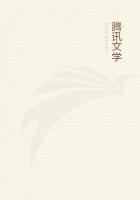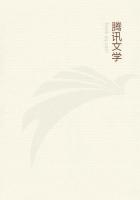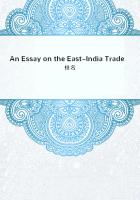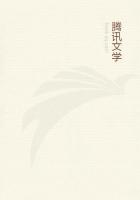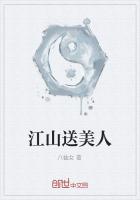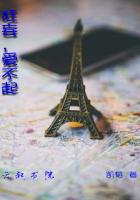The other Samoan myths chiefly explain the origin of fire, and the causes of the characteristic forms and habits of animals and plants. The Samoans, too, possess a semi-mythical, metaphysical cosmogony, starting from NOTHING, but rapidly becoming the history of rocks, clouds, hills, dew and various animals, who intermarried, and to whom the royal family of Samoa trace their origin through twenty-three generations. So personal are Samoan abstract conceptions, that "SPACE had a long-legged stool," on to which a head fell, and grew into a companion for Space. Yet another myth says that the god Tangaloa existed in space, and made heaven and earth, and sent down his daughter, a snipe. Man he made out of the mussel-fish. So confused are the doctrines of the Samoans.
Turner's Samoa, p. 198.
Turner's Samoa, pp. 1-9.
Perhaps the cosmogonic myths of the less cultivated races have now been stated in sufficient number. As an example of the ideas which prevailed in an American race of higher culture, we may take the Quiche legend as given in the Popol Vuh, a post-Christian collection of the sacred myths of the nation, written down after the Spanish conquest, and published in French by the Abbe Brasseur de Bourbourg.
See Popol Vuh in Mr. Max Muller's Chips from a German Workshop, with a discussion of its authenticity. In his Annals of the Cakchiquels, a nation bordering on the Quiches, Dr. Brinton expresses his belief in the genuine character of the text. Compare Bancroft, iii. p. 45. The ancient and original Popol Vuh, the native book in native characters, disappeared during the Spanish conquest.
The Quiches, like their neighbours the Cakchiquels, were a highly civilised race, possessing well-built towns, roads and the arts of life, and were great agriculturists. Maize, the staple of food among these advanced Americans, was almost as great a god as Soma among the Indo-Aryans. The Quiches were acquainted with a kind of picture-writing, and possessed records in which myth glided into history. The Popol Vuh, or book of the people, gives itself out as a post-Columbian copy of these traditions, and may doubtless contain European ideas. As we see in the Commentarias Reales of the half-blood Inca Garcilasso de la Vega, the conquered people were anxious to prove that their beliefs were by no means so irrational and so "devilish" as to Spanish critics they appeared.
According to the Popol Vuh, there was in the beginning nothing but water and the feathered serpent, one of their chief divine beings;but there also existed somehow, "they that gave life". Their names mean "shooter of blow-pipe at coyote," "at opossum," and so forth.
They said "Earth," and there WAS earth, and plants growing thereon.
Animals followed, and the Givers of life said "Speak our names,"but the animals could only cluck and croak. Then said the Givers, "Inasmuch as ye cannot praise us, ye shall be killed and eaten".
They then made men out of clay; these men were weak and watery, and by water they were destroyed. Next they made men of wood and women of the pith of trees. These puppets married and gave in marriage, and peopled earth with wooden mannikins. This unsatisfactory race was destroyed by a rain of resin and by the wild beasts. The survivors developed into apes. Next came a period occupied by the wildest feats of the magnified non-natural race and of animals.
The record is like the description of a supernatural pantomime--the nightmare of a god. The Titans upset hills, are turned into stone, and behave like Heitsi Eibib in the Namaqua myths.
Last of all, men were made of yellow and white maize, and these gave more satisfaction, but their sight was contracted. These, however, survived, and became the parents of the present stock of humanity.
Here we have the conceptions of creation and of evolution combined.
Men are MADE, but only the fittest survive; the rest are either destroyed or permitted to develop into lower species. A similar mixture of the same ideas will be found in one of the Brahmanas among the Aryans of India. It is to be observed that the Quiche myths, as recorded in Popol Vuh, contain not only traces of belief in a creative word and power, but many hymns of a lofty and beautifully devotional character.
"Hail! O Creator, O Former! Thou that hearest and understandest us, abandon us not, forsake us not! O God, thou that art in heaven and on the earth, O Heart of Heaven, O Heart of Earth, give us descendants and posterity as long as the light endures."This is an example of the prayers of the men made out of maize, made especially that they might "call on the name" of the god or gods. Whether we are to attribute this and similar passages to Christian influence (for Popol Vuh, as we have it, is but an attempt to collect the fragments of the lost book that remained in men's minds after the conquest), or whether the purer portions of the myth be due to untaught native reflection and piety, it is not possible to determine. It is improbable that the ideas of a hostile race would be introduced into religious hymns by their victims. Here, as elsewhere in the sacred legends of civilised peoples, various strata of mythical and religious thought coexist.
No American people reached such a pitch of civilisation as the Aztecs of Anahuac, whose capital was the city of Mexico. It is needless here to repeat the story of their grandeur and their fall.

